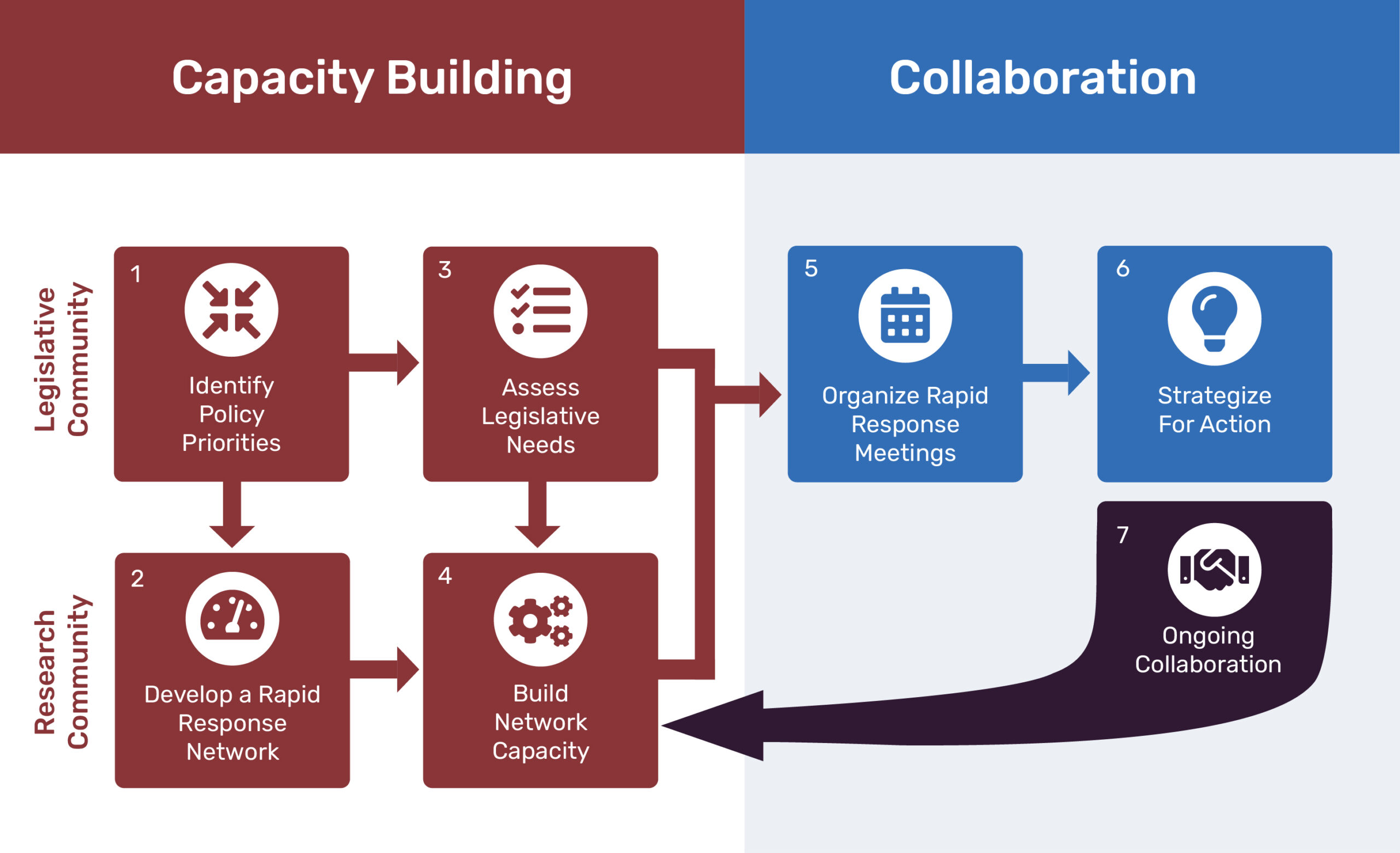Research-to-Policy Collaboration
Maximizing research impact by bringing researchers and policymakers together to achieve shared goals.
Research-to-Policy Collaboration
Maximizing research impact by bringing researchers and policymakers together to achieve shared goals.

We’ve recently updated our online infrastructure to accommodate the exciting growth and impact of the Research-to-Policy model. Our Fact Sheets and Free Training Library have been relocated and remain available for your use.
Evidence Of Impact
The RPC model has undergone extensive experimental testing to determine its value for both legislative and researcher participants. Results of a randomized controlled trial indicate that 23% more RPC offices introduced a bill containing URE legislative language than those not receiving RPC support. Legislative staff participating in the RPC model also reported greater value of using evidence to understand problems. Researchers randomly assigned to the RPC model also report a 55% increase in policy engagement, improved knowledge of lobbying rules, and a heightened belief that engagement benefited their program of research. Overall, these findings suggest that these researcher-policymaker connections can provide benefit to both groups.
Model
Research is publicly and philanthropically financed to make the world a better place for us all. The Research-to-Policy Collaboration model gets this research evidence into the hands of legislators so that it can be used in real world policymaking.
The Research-to-Policy Collaboration (RPC) is a proven model that matches government officials with researchers based on shared interests for strategic partnership development.
We do this by:
- Identifying Legislative Priorities and Opportunities
- Mobilizing Networks of Researchers
- Supporting Legislators’ Existing Policy Goals
The Collaborative Process
Identify Policy Priorities
With an understanding of the topic areas and issues that matter most to you, we assess how your existing research efforts intersect with current policy priorities in government.
Develop a Rapid Response Network
We assemble a searchable inventory of interdisciplinary researchers who are ready to engage with policymakers on aligned topics.
Assess Legislative Needs
By keeping our finger on the pulse of current needs and priorities through direct communication with legislative offices, we gain a clear understanding of opportunities to use research in existing policy efforts.
Build Network Capacity
We train and equip researchers in the legislative process so that they can effectively engage and translate their work. We also prompt researchers to respond to topics identified by legislators to identify matching partners and build their policy skills in practice.
Organize Rapid Response Events
We arrange face-to-face meetings in Washington, DC, allowing researchers to meet legislative staff in person and respond to policy requests, provide research interpretations, and plan future support efforts.
Strategize for Action
Building on insights gained during rapid response meetings, we make a strategic plan for partnership and impact.
Ongoing Collaboration
Collaboration activities allow researchers to address and prioritize requests from legislators in the following ways:
- Synthesizing and disseminating relevant research or data in fact sheets
- Writing policy briefs regarding active legislation
- Organizing congressional briefings
- Reviewing bill language for alignment with empirical evidence
- Preparing roundtable discussants
- Congressional hearings with researcher testimony
